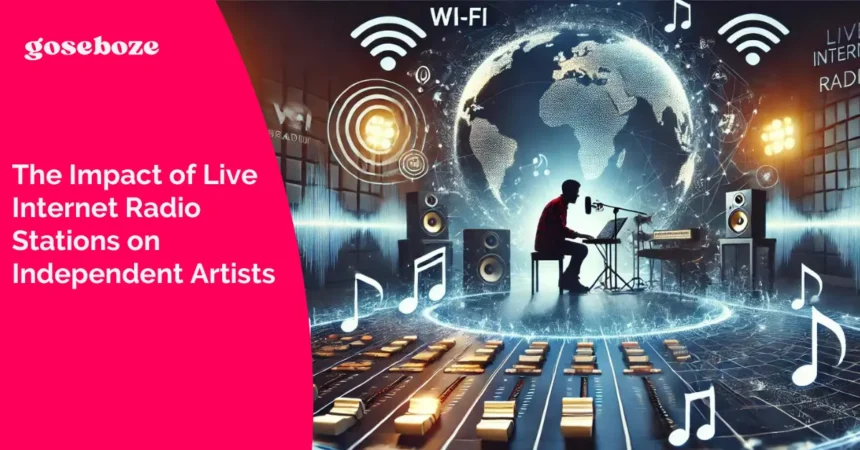The rise of the internet has transformed the music scene by opening avenues for up-and-coming artists to display their skills and reach an audience base through live online radio stations. The emergence of these platforms has allowed musicians to connect with listeners globally and make a name for themselves in a fiercely competitive field. Join us in this feature as we delve into how live internet radio stations have influenced artists and reshaped the way music is promoted.
Increasing Variety in Genres
When you listen to Internet radio stations, it provides an advantage to artists by allowing them to flourish in a wide range of musical genres that traditional radio stations might overlook due to their preference for mainstream artists in popular genres like indie rock and electronic music, among others, such as jazz and reggae. These specialized internet radio stations create opportunities for artists to reach out to audiences who are genuinely interested in their specific music style, thus promoting diversity and creativity in the music scene.
Global Reach and Audience Engagement
The Internet’s worldwide reach allows live online radio stations to connect with audiences, breaking free from limitations. Talented artists now have the chance to cross borders and present their music to fans around the globe, paving the way for collaborations with artists from different regions.
Establishing a Following and Earning Acknowledgment
For artists working independently to grow a loyal fan following, online radio broadcasts play a role in introducing them to listeners who are keen to explore fresh music offerings. Listeners who come across emerging talents via these channels often show interest in backing up and coming by attending their gigs, buying their music, or connecting with them through social media channels. The visibility obtained through radio shows could be key in kickstarting an artist’s journey and pushing them toward acknowledgment.
Promoting Up and Coming Artists
Many online radio stations dedicate themselves to promoting up-and-coming artists by featuring musicians who have yet to gain recognition in the music industry mainstream scene. These stations highlight the skills of individuals who might not have the chance to be heard through media channels or big record companies; instead, they give them a platform to display their creativity and build their reputation. By providing these exposure opportunities and platforms for emerging talent without established connections or labels in the industry, online radio stations play a role in evening out the playing field for artists.
Read Also: Best Innovative Offline iPad Games
Improving the Selection of Music
The wide range of choices on streaming platforms makes it challenging for artists to stand out amidst the sea of music offerings available. To address this challenge effectively, live internet radio stations create playlists that cater to genres or themes. These curated playlists help listeners discover talent and keep them interested in a diverse musical journey. Getting their music featured on these playlists offers artists an opportunity to gain exposure and connect with new fans.
Exploring Networking Prospects and Building Industry Relationships
Live online radio stations offer more than exposure and popularity; they also serve as a platform for music artists to effectively connect and network within the industry community. Station presenters frequently conduct interviews with emerging talents during their shows to allow artists to discuss their journeys and dreams with the audience. These interviews foster connections by linking musicians with listeners and industry insiders who seek out new talents for potential collaborations or business partnerships.
Fostering a Culture of New Things
Online radio stations play a role in fostering a culture of creativity and artistic expression for artists by offering a platform that encourages experimentation and originality in music creation and presentation.
Conclusion
The influence of radio stations on independent artists around the world has been significant in various ways. From broadening the range of music genres and reaching a global audience to helping artists gain followers and increasing their visibility by offering crucial networking opportunities, These platforms have revolutionized how up-and-coming musicians navigate the music industry landscape. As technology progresses further, we anticipate these stations playing an even bigger role in supporting independent artists and transforming the landscape of music promotion.

Maxwell Sterling is an esteemed entertainment journalist, celebrated for insightful critiques in film, music, and TV. With a Media Studies background, his decade-long career spans top entertainment outlets, where his engaging interviews and articles command a wide readership. An avid film enthusiast and musician, Maxwell’s passion enriches his professional insights.







